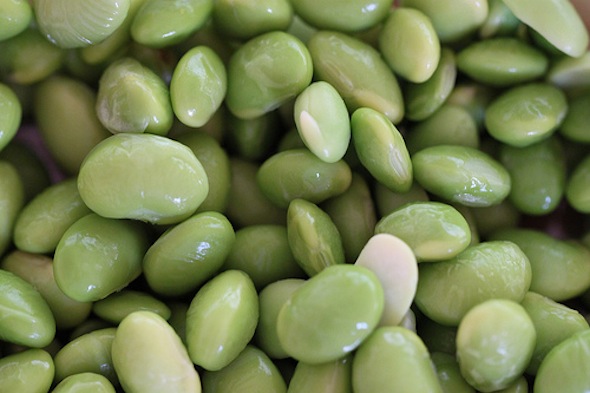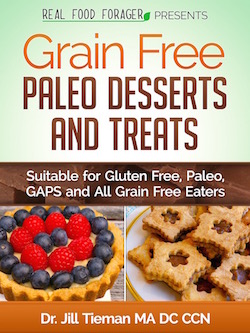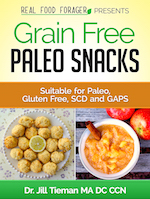In my last post I discussed the controversy about soy and the conflicting information being fed to the public. I was duly roped in in the 1990’s, but thankfully have become better informed due to the information and science presented by the Weston Price Foundation.
Here are the 7 reasons to avoid soy products like the plague:
1 – Soybeans contain potent enzyme inhibitors which block trypsin and other enzymes needed for protein digestion. Constant consumption of soy products can result in gastric distress, deficiencies in amino acids and inpaired protein digestion.
2 – Soybeans are high in phytic acid or phytates. This organic acid is present in the bran or hulls of all seeds (so this includes all grains and nuts) and blocks the uptake of critical minerals like calcium, magnesium and zinc. Phytates have been studied extensively and findings show that phytates contribute to widespread mineral deficiencies in third world countries. Analysis shows that calcium, magnesium, iron and zinc are present in the plant foods eaten in these areas, but the high phytate content of soy and rice based diets prevents their absorption.
Soybeans have the highest phytate content of all the grains and legumes and is resistant to phytate reducing techniques such as slow cooking or long soaking. Only a long fermentation will accomplish that, hence, fermented foods like tempeh and natto are very digestible. Tofu or bean curd is not fermented and neither are any of the fake soy products in the marketplace, including soymilk.
Since the Sad American Diet is full of soy and grains that are not properly prepared and therefore have little available nutrition, we have many people that are over weight but starving for nutrients. This is obvious in the sky rocketing rate of obesity in America today.
3 – Soy products are highly processed under conditions of high pressure and high heat. This denatures the protein structure and make it much harder to digest. In fact, it is transformed so much that many people have immunologic reactions to it. Soy is highly allergenic.
Additionally, in order to make a product such as soy milk, the beans are soaked in an alkaline bath which produces a carcinogen called lysinealine. The alkaline bath also reduces the amino acid cysteine, which makes in an incomplete protein.
Another highly processed aspect of soy is the use of soy protein isolate in many soy products, including baby formula. Soy protein isolate has many steps in it’s processing, the end result of which is a denatured protein that is stripped of all the carbohydrate and fat, soaked and prayed with chemicals (traces of which may remain in the powder) and that has compromised vitamin and protein quality. Yet, even after all the processing, the tyrpsin inhibitors are still present making digestion even more difficult.
4 – Soy has been shown to irritate the digestive tract. There are many compounds in soy that have been shown to be very irritating to the mucus membranes of the digestive tract.
Oxalates can be irritating and when they precipitate out, may cause painful kidney stones.
Lectins are also present in soy and may cause clumping of the red blood cells, which is bad in and of itself, but may also cause immunologic reactions.
5 – Soy contains phytochemicals called isoflavones, including genistein and daidzein. These are said to be adaptogens — that is, they can block estrogen levels that are too high and so protect against diseases such as cancer, and they can raise low hormone (estrogen) levels to protect against menopausal symptoms in women.
But, by affecting hormone levels, isoflavones can also potentially promote hormone sensitive cancers in certain people. The studies are conflicting and it is possible that they affect individuals differently.
These phytochemicals are also important to the issue of baby formula. The Weston Price Foundation is adamantly opposed to the use of soy baby formulas as they can cause hormone disruption in the tiny infant. Israel has banned the use of soy infant formula. That tells you something.
6 – Soy is a goitrogen and may negatively affect the thyroid gland.
7 – Maybe this should be #1: 90% of the soy in commercial food is genetically modified unless it is organic. Soy products are found in most commercially prepared foods, from soybean oil, found in most salad dressings to soy flour, found in many commercial baked goods like breads and muffins.
What foods have you given up because of the soy component? Leave a comment and let me know!
Resources:
The Whole Soy Story, Kaayla Danial















